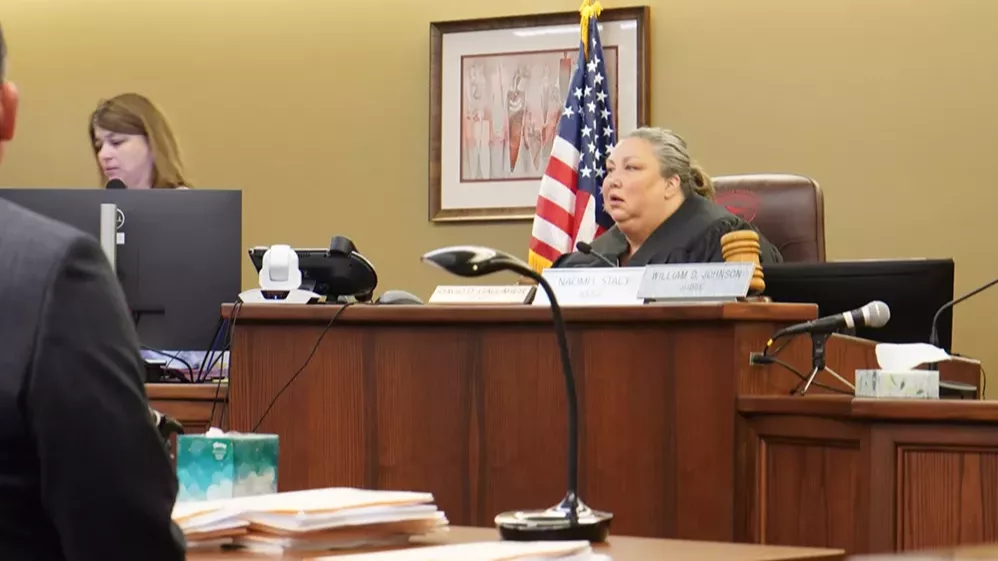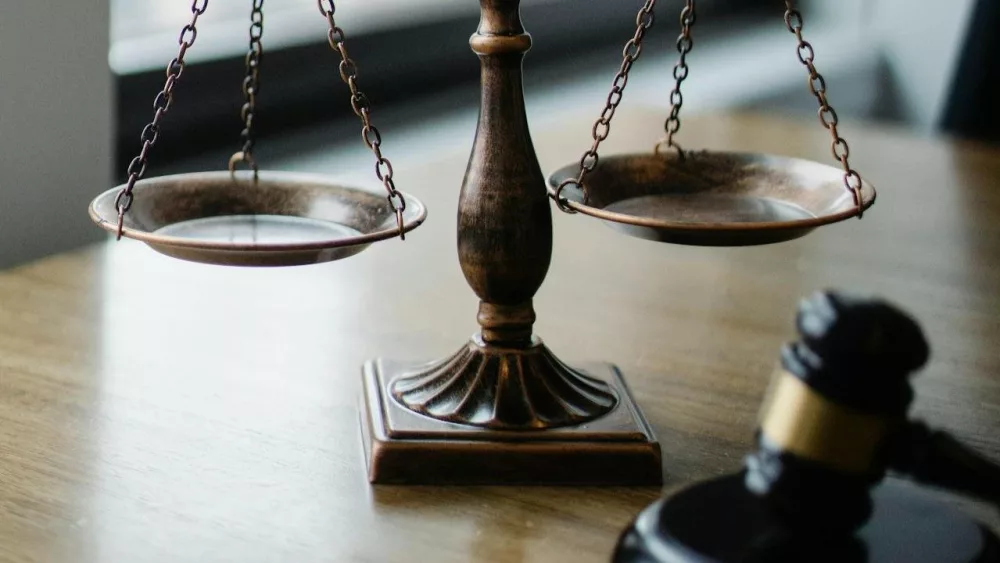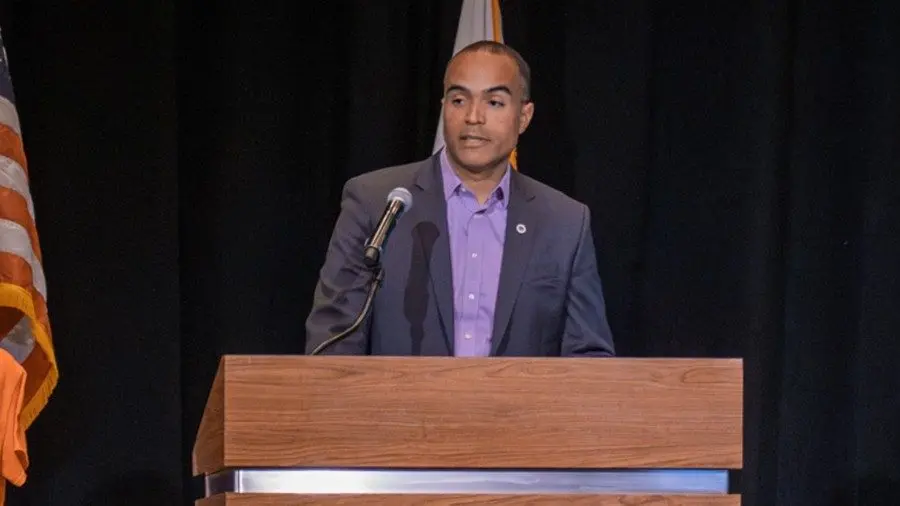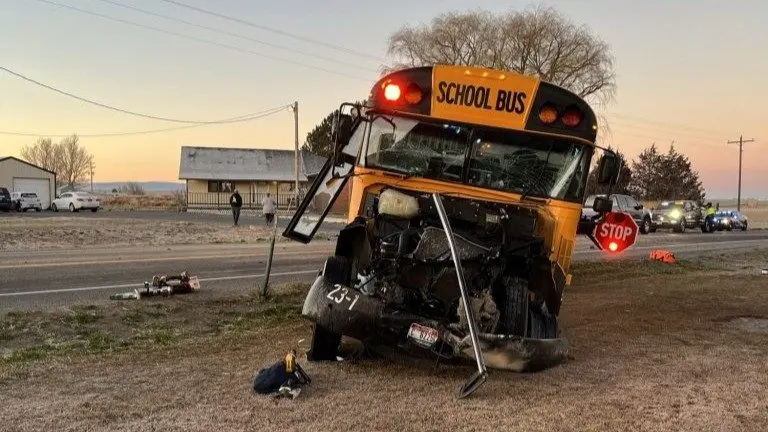Law would simplify patchwork oversight governing jurisdiction on tribal lands
By Melanie Henshaw, InvestigateWest
Reporter Melanie Henshaw covers Indigenous affairs and communities in the region. Reach her directly at melanie@investigatewest.org or by phone or Signal at (971) 258-0891.
This story was originally published by InvestigateWest, a nonprofit newsroom dedicated to change-making investigative journalism. Sign up for their Watchdog Weekly newsletter to receive stories like this one in your inbox.
SALEM, OR – A tribally backed bill that could simplify the jurisdictional patchwork in Oregon Indian Country was signed by Gov. Tina Kotek on May 22 after sailing through the state Legislature.
Passed unanimously by both legislative chambers, the new law will create a formal process for tribes to petition the state for the reversal of a 1953 federal law as it applies on tribal lands within the boundaries of Oregon.
Jurisdiction over criminal and civil cases on tribal lands is a complex picture that changes based on the Indian status of the people involved, making the crimes the potential responsibility of federal, state or tribal authorities. Some of that is shaped by 1953’s Public Law 83-280, also known as PL-280, which grants certain states jurisdiction on reservations. Many Native Americans view the law as an unwanted imposition on tribal affairs that undermines the basic principles of tribal sovereignty and hurts public safety on tribal lands.
In Oregon, PL-280 mandates that the state exercise criminal and civil jurisdiction over tribal lands.
The sponsor of the new bill, Senate Bill 1011, Oregon state Sen. Anthony Broadman, D-Bend, a lawyer who represented tribal governments and Indigenous rights throughout his career, said he’s very happy with the huge support it received from lawmakers on both sides of the aisle, adding that it shows a commitment to tribal sovereignty.
“It was important to me that we walk the talk,” he said.
Broadman said formalizing the process builds a more equitable system and shows respect to tribes. Previously, tribes had to make requests that had no clear timeline to the governor to begin the process.
The 1953 law was passed over the objections of tribes who would be affected and without consulting tribal governments. It became law just before a federal policy called the Western Oregon Termination Act of 1954 unilaterally eliminated hundreds of tribes and bands in Western Oregon as political entities.
As reported by InvestigateWest in March, if the tribe and state’s petition is then approved by the federal government, it would return to a pre-1953 jurisdictional arrangement, giving criminal jurisdiction to the federal government and empowering tribal courts to exercise jurisdiction over civil disputes between tribal citizens, a process known as retrocession.
“Oregon has a history that we need to acknowledge and confront, and the Western Oregon Termination Act and termination era, including PL-280, are part of that,” Broadman said.
Broadman said the 1953 law has left public safety vacuums, and its negative effects have disproportionately affected Native American women and children, Broadman says.
“Retrocession just un-does the damaging impacts of Public Law 280,” Broadman testified on April 22 before the House Committee on Emergency Management, Government and Veterans.
The power of tribal governments to apply law is seriously limited by the federal government. Due to the Supreme Court ruling Oliphant v. Suquamish Indian Tribe, tribes generally cannot prosecute non-Indians for crimes committed on tribal lands, with a few exceptions for domestic or sexual violence against tribal citizens. The federal government retains wide-ranging criminal jurisdiction over tribal lands.
While some tribal governments are hopeful for the eventual reversal of Oliphant and other laws that limit tribes’ jurisdiction, they say beginning to remove unwanted state jurisdiction over tribal affairs is an important step toward respecting tribal sovereignty. While the new law doesn’t contain the provisions to change jurisdiction itself, it creates a transparent process for tribes to follow.
“Tribal nations, which retain inherent sovereignty and the right to self-determination and self-governance, have faced numerous affronts to their jurisdictional powers, including through the enactment of Public Law 83-280,” testified Corinne Sams, one of the nine trustees of the Confederated Tribes of Umatilla Indian Reservation, on April 22.
Some tribes sharing geography with Oregon have already undertaken the informal process to go through retrocession, but six tribes still remain under Oregon state civil jurisdiction and five tribes remain under PL-280 criminal jurisdiction. The Confederated Tribes of Warm Springs Reservation has always been exempt from PL-280.
Confederated Tribes of Umatilla Indian Reservation underwent criminal retrocession in 1980, and today is at the forefront of advocacy for empowering tribal courts.
“(Retrocession) is essential to improving tribal self-governance and a further acknowledgment by the state of Oregon of tribal sovereignty,” Sams testified.
Tribal officials and legal experts like Broadman say the forced imposition of concurrent state jurisdiction under PL-280 undercut the tribal-federal relationship and have ongoing negative effects on tribal communities in Oregon. The overlapping jurisdictions of state, tribal and federal agencies can lead to ongoing issues, including delayed law enforcement investigations and fewer prosecutions.
“PL-280, plain and simple, hurt tribes,” Broadman said. “It took jurisdiction away from the United States and gave it to states. And that in itself — philosophically, allowing states to exercise jurisdiction in Indian Country — that really is inconsistent, again, with centuries of federal law when it came to how states and tribes are going to act toward one another.”
When it was passed, PL-280 provided no additional resources or money to state law enforcement to account for the additional resources needed to adequately police tribal lands, even as tribes took significantly more land into trust in the past 30 years. Tribal officials say the federal governments used PL-280 as an excuse to underfund tribal courts, undermining the function of tribes’ legal systems.
Most Native Americans face violence in their lifetime, according to the National Institute of Justice, and jurisdictional complexities can contribute to delayed investigations and fewer prosecutions. Distrust of law enforcement, particularly those from outside tribal communities, is a longstanding issue, and tribal citizens are more receptive to tribal police officers from within their communities responding to calls for help.
“This bill is rooted in respect and a commitment to sovereignty that I know we here in the Legislature aspire to,” Broadman testified on April 22.





